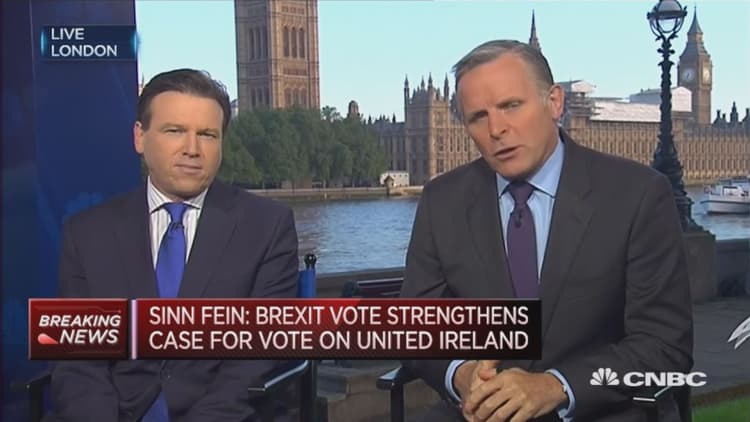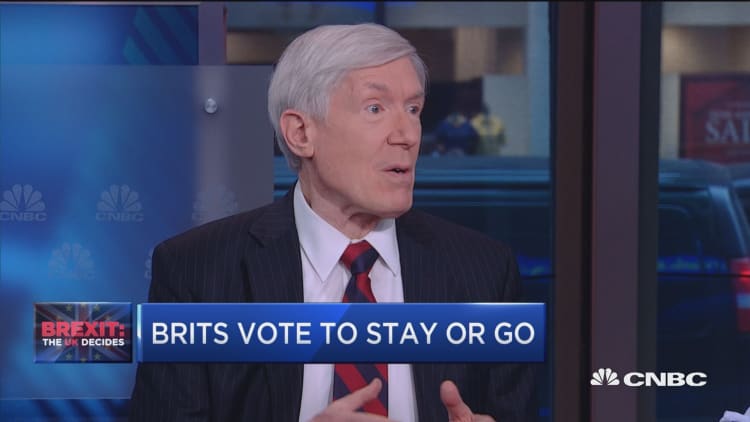Key tenets of globalization including trade and immigration were among catalysts that pushed the U.K. to exit the EU last week, leading many experts to wonder whether the policy is still welcome in today's world.
That debate took center stage at a World Economic Forum (WEF) panel in Tianjin on Tuesday.
"This [Brexit] is a key pullback to more trade openness, labor movements and globalization in general. So in a way, globalization is running out of steam," observed Mehmet Simsek, deputy Prime Minister of Turkey.
Politicians supporting the U.K.'s Leave camp pointed to the EU's immigration rules, particularly the influx of refugees, diminished job prospects and stagnant salaries—factors widely considered the result of porous borders—as reasons to leave the economic bloc. Thursday's vote was a clear reminder that the bulk of the U.K. public wasn't happy with these policies, which experts at WEF said effectively translated to dissatisfaction with globalization.

"There is certainly a backlash against globalization … There are winners and losers, we saw that in the U.K. vote: The gap between the rich and less rich, young and old, skilled and less skilled, urban and rural…We have to recognize these gaps are becoming more severe," said Nouriel Roubini, chairman of Roubini Global Economics and a New York University professor.
Anti-globalization parties are increasingly gaining mass support in both peripheral and core euro-zone countries as the region's unemployment remains in double digits, Roubini continued.
In Austria for example, the far-right Freedom Party of Austria, who also takes a hard line on immigration, was a mere percentage point shy from winning the presidency this May.
A similar story can be seen across the Atlantic, where Republican candidate Donald Trump has won the support of several blue-collar, predominantly white Americans who complain of job losses, influx of foreigners and loss of competitiveness from free trade.
Offering a more sanguine view, Jing Ulrich, Asia-Pacific managing director and vice-chairman of JPMorgan Chase, didn't believe international integration was under threat.

"The path to globalization will continue, Brexit won't impact cross-national movements."
Zhu Min, deputy managing director of the International Monetary Fund (IMF), was slightly more worried about the implications of Thursday's referendum.
"We need to remind the parties involved [in Brexit] to support globalization. If trade negotiations between the U.K. and EU go into reverse course, that would be terrible."
With anti-globalization sentiment set to continue, countries have no choice but to adapt, hinted Huang Yiping, Professor at Peking University.
China, for example, has been the main beneficiary of globalization for decades but now, the mainland must review how to reconfigure its growth engine and focus on domestic instead of external demand, he noted.

